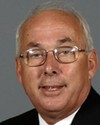I am now prepared to rule on the question of privilege raised on November 22, 2004 by the hon. member for Central Nova concerning remarks made by the hon. Minister of Citizenship and Immigration which the hon. member for Central Nova claimed deliberately misled the House and damaged his reputation.
I would like to thank the hon. member for Central Nova for having raised this question as well as the hon. government House leader and the hon. Minister of Citizenship and Immigration for their contributions on the issue.
The hon. member for Central Nova alleged that in answering a question during oral question period on Friday, November 19, 2004, the hon. Minister of Citizenship and Immigration clearly implied that he had improperly sought to obtain a minister's permit for a visitor's visa on behalf of a student from India.
The words of the hon. minister, as reported in the Debates of November 19, 2004, at page 1603, were as follows:
The deputy leader of the Conservative Party requested a permit a couple of weeks after the election for a personal friend. I have since learned that the hon. member's personal friend was a former Conservative candidate and has been a big political contributor to the Conservative Party. I guess I should have asked, did he work on the campaign?
The hon. member for Central Nova maintained that the minister had incorrectly asserted that his action was taken as a favour for a personal friend who was also a financial contributor to his party. The hon. member further charged that the hon. minister had implied that this person had worked on his election campaign. These allegations, he felt, were an attempt to intimidate him and other members of the official opposition and so impede them in their questioning of the minister's own actions. As well, he felt that the allegation that he had acted improperly constituted a deliberate attempt to tarnish his reputation.
The hon. member for Central Nova, while acknowledging that he had intervened to assist in obtaining the minister's permit, contested the minister's interpretation. He stated that while he was acquainted with the person who had approached him seeking the permit, that person was no more than an acquaintance. He further stated that neither that person, nor the person for whom the permit was sought, had ever worked on his campaign.
In replying to these charges on Wednesday, November 24, 2004, the hon. Minister of Citizenship and Immigration denied that she had deliberately misled the House and presented a clarification of the remarks to which the hon. member for Central Nova had objected.
She pointed out that in her reply to the question asked on November 19, she had not stated that anyone had worked on the electoral campaign of the member for Central Nova but had posed a question. She stated in the Debates of November 24, 2004, at page 1819:
By asking a rhetorical question, my intention was to demonstrate that the process was not influenced by politics. I was attempting to illustrate that I judged each case based on its merits, no matter which member brought it forward to my attention. It is not a question of fact, but of misunderstanding.
She went on to claim that staff in her office had been left with the clear impression that the person on whose behalf the hon. member for Central Nova was intervening was the member's friend.
There are, I think, two points at issue here: first, whether the hon. Minister of Citizenship and Immigration made remarks in the House which she knew to be false; and second, whether she deliberately made those remarks with a view to intimidating members of the official opposition and in an attempt to tarnish the reputation of the hon. member for Central Nova. These are very serious charges and this case merits the close attention of all members.
Both my predecessors and I have on many occasions reminded the House of the importance of ensuring that accurate information forms the basis of exchanges made in our proceedings. Furthermore, not only must members refrain from remarks which they know to be false, they must also ensure that in speaking of one another they do so with respect, maintaining that level of civility required by our practice and expected by all Canadians.
In this regard the book entitled House of Commons Procedure and Practice states, on page 522, that:
Remarks directed specifically at another Member which question that Member's integrity, honesty or character are not in order.
In the present case, the parties involved have given very different characterizations of the situation and have provided to the House their explanations as to how they arrived at the positions they hold. The hon. minister has spoken of a “misunderstanding”. Whether that is the case or whether we are simply faced with two different interpretations of events is not up to the Speaker to determine. Disagreements about facts and how the facts should be interpreted form the basis of debate in this place.
I would caution all hon. members that, especially in the heat of debate or during the vigorous exchanges that characterize question period, there is a danger they will be so caught up in the moment that they may phrase their remarks in ways that can best be described as unfortunate. I believe this is what has occurred in the present case. Members have been provided with explanations of how the parties have arrived at their competing views and so they may draw their own conclusions.
I do not think it is for the Chair to conclude that the issue before us is, rather than a matter of privilege, a dispute about facts. I would urge all hon. members to use prudence in choosing their words in order to avoid this kind of argument being raised in the future.














